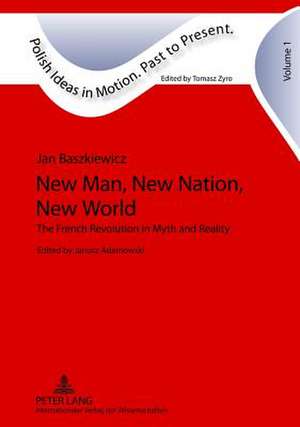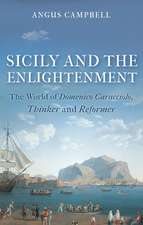New Man, New Nation, New World: Polish Ideas in Motion. Past to Present, cartea 1
Autor Jan Baszkiewicz, Janusz Adamowski Traducere de Alex Shannonen Limba Engleză Hardback – 2 mai 2012
Preț: 412.39 lei
Preț vechi: 448.25 lei
-8% Nou
Puncte Express: 619
Preț estimativ în valută:
78.91€ • 82.60$ • 65.68£
78.91€ • 82.60$ • 65.68£
Tipărit la comandă
Livrare economică 26 martie-01 aprilie
Preluare comenzi: 021 569.72.76
Specificații
ISBN-13: 9783631615768
ISBN-10: 3631615760
Pagini: 296
Dimensiuni: 154 x 219 x 23 mm
Greutate: 0 kg
Editura: Peter Lang Gmbh, Internationaler Verlag Der W
Seria Polish Ideas in Motion. Past to Present
ISBN-10: 3631615760
Pagini: 296
Dimensiuni: 154 x 219 x 23 mm
Greutate: 0 kg
Editura: Peter Lang Gmbh, Internationaler Verlag Der W
Seria Polish Ideas in Motion. Past to Present
Notă biografică
Jan Baszkiewicz (1930-2011) was a Polish historian whose fields of research included political thought, social movements and political institutions. Much of his work focused on the Age of Enlightenment and the history of France. Other than New Man, New Nation, New World, his most popular works covered Robespierre, Danton and Richelieu.
Cuprins
Contents: Enlightenment philosophers on revolutionary regeneration ¿ The Revolution as Final Judgment ¿ The Revolution as a process ¿ The moral existence of the individual ¿ The new man and the Declaration of the Rights of Man and Citizen ¿ The formation of civic attitudes ¿ Revolutionary holidays ¿ Popular culture, the problem of vandalism ¿ National unity on the ruins of regional differences ¿ The problem of linguistic unity ¿ Socio-political guarantees of national unity ¿ Religion as an instrument of integration ¿ The family, the model for the social community ¿ The conflict over political rights for women ¿ The French Revolution as a universal model ¿ The legal and practical situation of foreigners ¿ New hope for a world revolution ¿ The world in revolutionary futurology.














